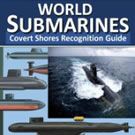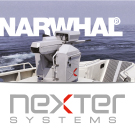 Project 636 heavy diesel-electric submarine |
|||
In
particular, Rosoboronexport offers an export opportunity on the state-of-the-art
project 636 heavy diesel-electric submarine, which proved highly
effective while operated by naval forces of several countries. Unparalleled in her technical and operational specifications, the ship is designed to conduct effective anti-sub warfare along with the capability to engage surface ships and coastal targets of potential adversary striking operations both independently or as part of a larger task force. Increased output of the main propulsion plant allowed to enhance significantly her submerged speed alongside with endurance range up to 7500 miles. Furthermore, she is one of the world’s quietest diesel-electric submarines providing guaranteed early enemy detection and long-range attack as well as evasive maneuverability and concealment. Outstanding fighting efficiency of the project 636 submarine is supported by the Club-S missile system, intended for engaging all types of surface, submerged and coastal targets with unrivalled 3M-54E cruise missiles in the background of active electronic and firing counter effort. Capable of striking targets 275 km away, the system considerably strengthens combat stability of the DE submarine when facing enemy countermeasures. Wide use of the Club-S cruise missile system may result in drastic change of the entire sea battle nature in favor of the owner. Combat capabilities of Russian Amur-1650 conventional propulsion submarine are highly appreciated by expert community. Her sister ship – project 677 Lada class flagship designated St. Petersburg, joined the Russian Navy. Amur-1650 has significant advantage over foreign submarines – her powerful well-balanced weapon system incorporates anti-ship missiles with their multiple launch capability from all torpedo tubes. Along with this Amur-1650 is capable of dealing with a non-typical for conventional submarines mission by engaging ground-based targets with cruise missiles. Currently Russia is the only country operating these missiles. Another precedence over foreign analogues has to do with extended target acquisition range due to unparalleled sonar system as well as lowered acoustic signature. |
|||
 Project 22356 Frigate |
|||
Project
22356 Frigate is designed to perform anti-sub hunter-killer missions,
destroy inland targets and provide amphibious landing support.
With her overall length of 135 m and 4750-tonne displacement, she is powered
by compound 64400 shp gas-turbine propulsion plant supporting the maximum
speed of 29.5 knots, range up to 4500 nautical miles and endurance of
30 days. These characteristics display the project 22356 frigate as the
most favorable platform for shaping effective naval multi-purpose task
forces. Primary weapon of the frigate comprises Club-N integrated anti-sub/anti-ship missile system. Versatile artillery arsenal, air defence systems, anti-sub warfare assets as well as Ka-28 or Ka-31 shipborne helicopter deployment capability allow the vessel to cope with the whole range of combat missions assigned. Geometric shape, sharpened stem post, double-layer bottom along the most part of the hull provide the ship with excellent seaworthiness and protection. New stabilizers with non-retractable fins enable weapon use in rough seas (WMO up to 5 points) without restriction. Project 22356 frigates have considerable upgrade-and-modify potential suggesting development of a vast variety of derivatives, both multirole and specialized. |
|||
 Project 21632 Tornado missile boat |
|||
Project
21632 Tornado missile boat (gunboat) is another promising export option.
Her sister boat, project 21630 Astrakhan, joined the Russian
Navy in 2006. Characterized by relatively small displacement (about 600 tons) the vessel is well-armed with a 100-mm and two 30-mm artillery mounts, Grad multiple-launch rocket system, Gibka turret mount operating Igla MANPADS. Such an impressive weapon arsenal allows the Tornado to effectively counter surface, submerged and aerial targets. In peacetime she is indispensable when it comes to patrolling maritime areas, coastal strips and rivers. |
|||
 Project 20382 Tiger corvette |
|||
Project
20382 Tiger corvette is designed for protecting economic zone, state maritime
boundaries, conducting effective anti-sub warfare as well as engaging
surface ships and aerial targets. Project 20380 sister ships
were built specifically for the needs of Russian Navy, carrying out active
duty diligently ever since. Tiger is equipped with the Uran-E ship-borne missile system, the A-190E 100-mm artillery mount, powerful anti-sub weapons and an air defence complex. Her hull and superstructure are made under STEALTH technology; her propulsion plant comprises two diesel geared units. Offering a wide scope of warships, submarines and fast boats to our foreign partners, Rosoboronexport pursues active marketing policy which is based upon profound requirement and needs analysis among our potential customers. Herewith, in most cases it is not only about supplying maritime defence products, but also about their joint development and manufacture at our customers’ shipyards or on Russian soil. |
|||
Oceans and seas lie still before them; Rosoboronexport at IMDS 2013 in St Petersburg, Russia
- Posted On











